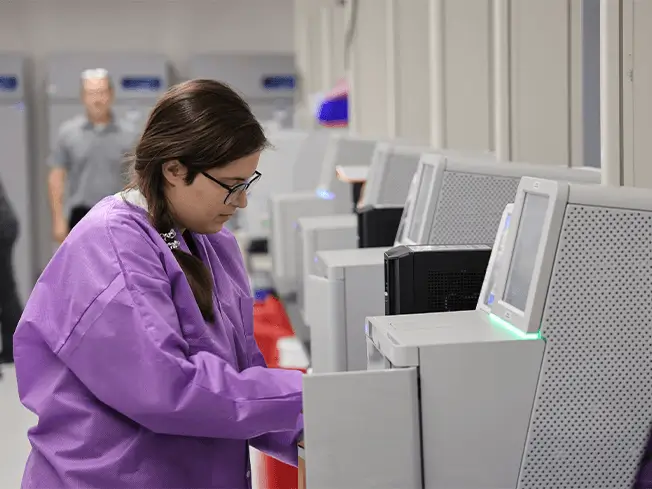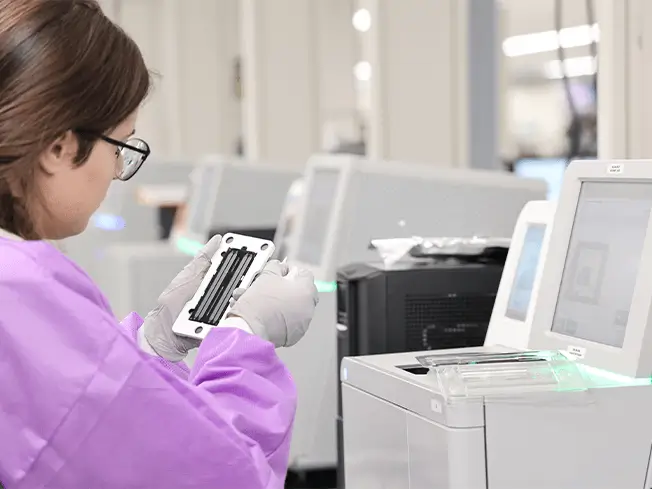Genetic screening for cancer
DNA Tests for Cancer
Genetic or genomic sequencing and cancer DNA tests are powerful tools. Genomic tests guide the development of customized treatments based on each patient’s unique genetic makeup and mutations, while genetic DNA tests allow for earlier interventions to prevent disease. Researchers have identified more than 400 genes associated with cancer development. Many of these genes can cause an increased risk of cancer if inherited.
Florida Cancer Specialists & Research Institute (FCS) has robust genetic testing capabilities available for patients.

DNA Sequencing for Targeted Therapy
Our state-of-the-art FCS Laboratory is equipped to provide next generation sequencing (NGS) clinical testing on solid tumors and hematologic malignancies. Information gained through genetic testing can be used to personalize therapy — increasing cure rates and extending lives.
NGS testing allows geneticists to detect mutations in hundreds of different genes simultaneously, giving a more unique understanding of each patient’s individual diagnosis. When oncologists know the specific genetic alteration a patient has, there may be a therapy that actually targets that exact mutation, as well as ongoing clinical trials the patient would be eligible for based on his/her molecular profile.
FCS continues to expand our robust in-house testing capabilities so that we can provide our patients with fast and accurate diagnosis and treatment planning, which leads to more positive outcomes.
For FCS molecular testing inquiries, email: MolecularTesting@FLCancer.com

Genetic Testing for Cancer Risk
We can inherit genetic mutations from our parents that put us at increased risk of developing certain cancers. Knowing risk factors for hereditary cancers early can be lifesaving, allowing patients to choose early screening and preventative treatments to decrease their risk of disease.
Supported by the latest technology, genetic tests help to identify those who are at high-risk. Individuals can be referred for consultation and genetic testing or receive guidance to make lifestyle changes or explore other preventive options to reduce future risk.
Facts About Genetic Screening and DNA Testing
What can I expect when I meet with an FCS cancer expert?
Your personal and family cancer history will be reviewed, including type(s) of cancer and age(s) at diagnosis. Based on this information, a genetics professional will evaluate your risk of inherited cancer and discuss available genetic testing.
In a visit referred to as a genetic counseling session, the genetics specialist will discuss the benefits and considerations to help you decide if genetic testing is right for you. Topics covered in the discussion include:
- The process for ordering a cancer DNA test
- Insurance coverage
- Confidentiality
- The emotional impact of the information on you and your family
- Medical management options based on your family history and/or genetic test results.
Speak to your provider if you are interested in doing genetic screening.
